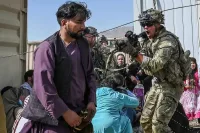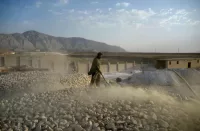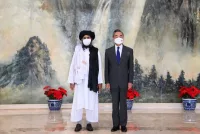
EEUU y las posguerras fallidas
Desde su independencia, Estados Unidos sólo ha perdido una guerra importante (aparte de múltiples intervenciones militares en todos los continentes), la de 1812 contra los dominios británicos de Canadá, y ha empatado otra, en Corea entre 1950 y 1953. El resto de las guerras relevantes (las libradas contra los nativos norteamericanos, contra España por Cuba, Puerto Rico y Filipinas, las dos Mundiales, la Guerra Fría o la primera Guerra del Golfo, fueron claramente victoriosas para Washington.
Alguien puede argüir con mucho fundamento que también perdió la Guerra del Vietnam, si bien cuando se produce la entrada en Saigón de las fuerzas del Vietkong y del Ejército del Norte, en abril de 1975, las fuerzas militares norteamericanas se habían retirado ya del país en virtud de los Acuerdos de París a principios de 1973 entre Le Duc Tho y Henry Kissinger.… Seguir leyendo »










